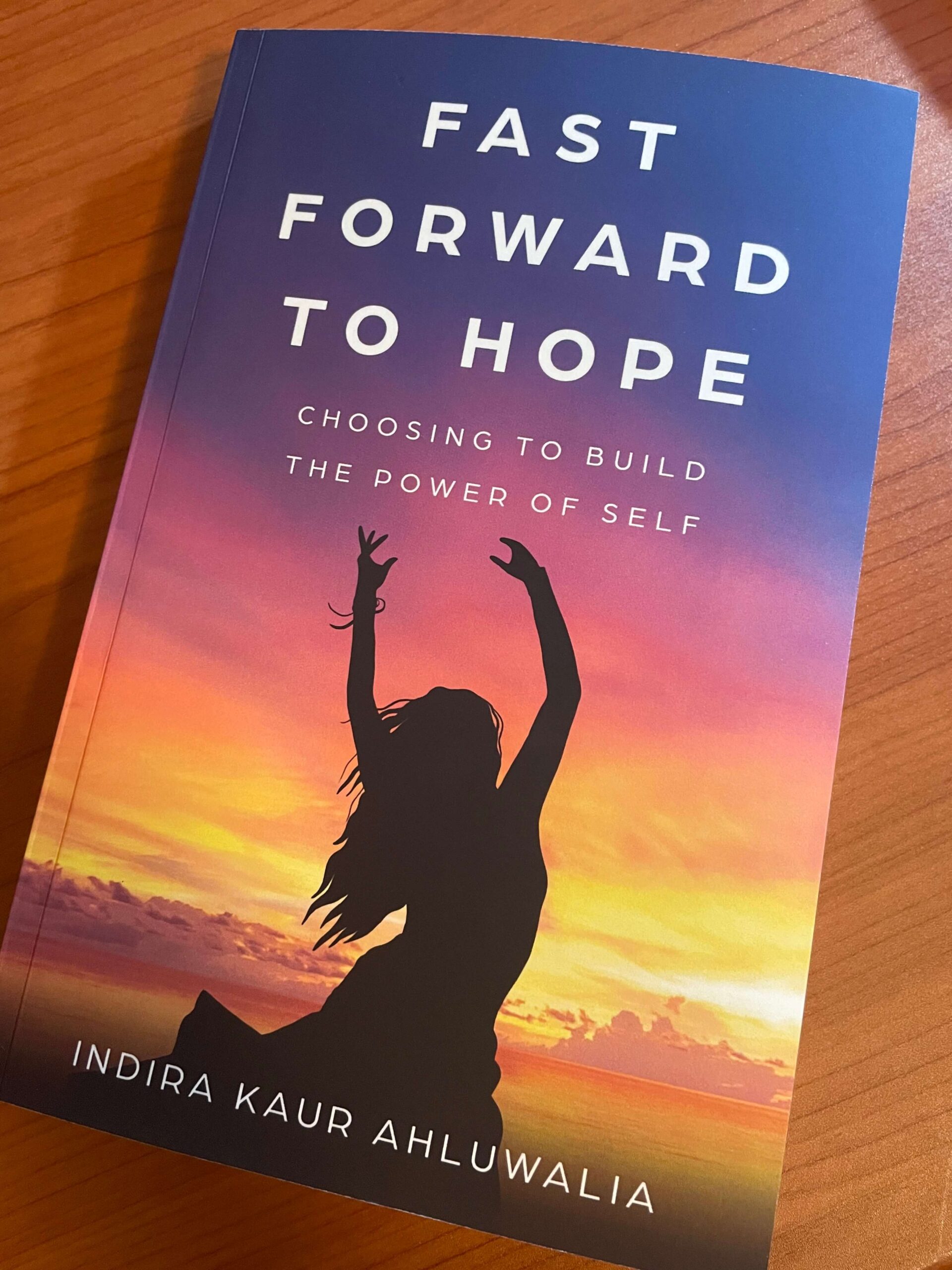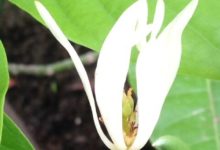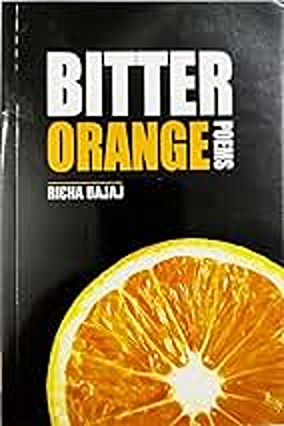Fast Forward to Hope: Choosing to Build the Power of Self by Indira Kaur Ahluwalia is an extraordinary new memoir about living with a Stage-4 metastatic cancer diagnosis. Niharika reviews it exclusively for Different Truths.

Indira Kaur Ahluwalia’s biography Fast Forward to Hope: Choosing to Build the Power of Self meticulously traces, sometimes in excruciatingly harrowing detail, a journey of resilience, grit, hope and the indefatigable spirit of the Khalsa.
It is the poignant story of self-discovery against the backdrop of Stage-IV metastatic cancer. But the reader need not be touched by cancer to find something of immense significance in this book. Indira wields an honest pen, as immigrant, daughter, mother, wife, business owner, and member of her faith community.
The book holds space for “all of us experiencing the various calamities that are the hallmarks of our lives.” It is a ‘cancer book’ without being a cancer book.
Vulnerability and Human Relationships
Indira’s thoughtfulness about uncertainty, interconnectedness, faith, vulnerability, and human relationships speaks to all of us, and not just those of us who have encountered life-changing, and potentially life-ending diagnoses.
The prospect of her own mortality forces Indira to encounter her internalised lessons that propel her forward. As society celebrates the “can-do spirit”, somehow suggesting that if you “can’t do”, you are a failure, Indira reminds us that as human beings, very little separates us.
She is the hero of her own story, but she wants us to understand that when we are at our most vulnerable, we are most certainly not alone.
She is the hero of her own story, but she wants us to understand that when we are at our most vulnerable, we are most certainly not alone. And by no means, are we a failure.
The methodical archiving of her experience gives readers an intimate look not only into the experience itself, but also her approach to the experience.
Spread of Cancer
Indira is very ill, and the cancer had spread to her bones even before it had been diagnosed in her breast. At the time of her diagnosis, we find her as a young married mom of two little children, and a sought-after entrepreneur, running her own business.
Even as she is planning to live, Indira finds herself preparing to die, she tells us.
Even as she is planning to live, Indira finds herself preparing to die, she tells us. Perhaps her self-awareness is a large part of what makes this book such a mesmerising, transformative read.
With no qualms at all, Indira pulls the reader deeply into her life as she populates the narrative with “well-meaning” relatives, stoic family, the solidarity of her spouse, followed by a crumbling marriage, little children who need Mommy, impatient nurses, grave doctors, supportive friends, the mercenary “cancer industry”, and the endless love of her faith community.
Survival Rates
Statistics tell us that over the past few decades, attitudes toward and treatment of cancer have evolved. There have been improvements in survival rates for certain types of cancer, but there is much to be done.
Indira pays her respects to those who have voyaged into the night, and those who are fighting…
Indira pays her respects to those who have voyaged into the night, and those who are fighting – and she recognises her responsibility as the keeper of the elixir in her bottle. “Dr. Butch kept talking almost in awe that I stood before him now, still stable and with an excellent prognosis. What he said next pierced my consciousness and awakened the core of my very being.” “If you can figure out what’s in your bottle, more people will live.”
“There lay the difference between life and death that I had seemingly understood without even knowing it. I called it faith then. Today, at the time of writing this, 13 years and eleven months later, I am still trying to understand its power.”
Life Lessons
Indira’s story resonates at many different levels, even while reminding us of its specificity to the author and the context that gave it form. Fast Forward to Hope tells her story, offering up her observations on dying and the ways in which it has taught her to live.
It tells the story of the indomitable human spirit that works hard to outwit, to outlive, to survive, and to ‘un-die’.
It tells the story of the indomitable human spirit that works hard to outwit, to outlive, to survive, and to ‘un-die’. It tells the story of learning not to accept everything in the moment, but to just stay one. step. ahead.
Indira Ahluwalia’s diagnosis does not own her, we learn, as we keep reading. It is she who owns her diagnosis. Her memoir comes at a time when after nearly two years of surviving a pandemic, we all understand grief, endurance, isolation, hope and healing.
Shared Storm
We are in a shared storm where we have learned to sustain each other in tangible and intangible ways. Indira reminds us of our interconnectedness.
Fast Forward to Hope is a hauntingly life-affirming reflection on the challenge of facing death…
Fast Forward to Hope is a hauntingly life-affirming reflection on the challenge of facing death, and Indira has given us an unexpected opportunity to walk in her shoes on her journey as she, and through her, the reader, begins to find the power of self.
“Onwards”, she urges us, “in charhdi kala!”
The reviewer would like to acknowledge October-Breast Cancer Awareness Month and to urge women to stay in close touch with their doctors, and to get routine mammograms.
Photos sourced by the reviewer





 By
By
 By
By
 By
By
 By
By
It has been my honour to review this memoir. And many thanks to DT for publishing the review. Indira Ahluwalia has sent the following message:
“I loved it, Niharika. I love you heard and captured the essense of my experience, and the book, and explained it so beautifully and eloquently. Wow. I am grateful. And doubly so to connect so I can join you to raise awareness for breast cancer!